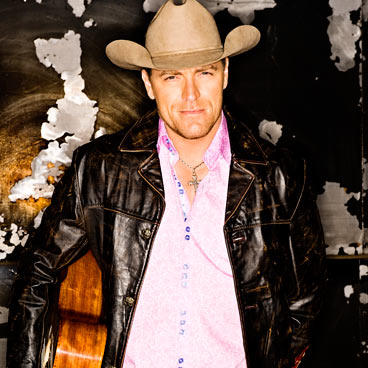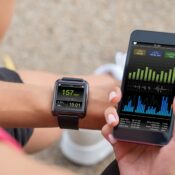Part 1: A Young Man’s Struggle.
Part 2: Giving Back
Country singer George Canyon speaks about the recognition he’s most proud of—a humanitarian award for his work to support finding a cure for type 1 diabetes. Canyon offers inspirational talks and performances for children living with type 1 and their families in Canada and the U.S.
Post: You have talked to thousands of type 1 diabetic kids. What do you want them to know, and how do you encourage them?
Canyon: My basic message to kids is: Control your diabetes, and live your dreams. One way that I connect with the kids is by comparing our blood sugar numbers—it’s just something they like to do. But children need to understand that they can and must control their diabetes. When they lend a hand in testing their blood sugar and taking their insulin, in eating right and exercising regularly, they develop a certain pride in taking care of themselves. Over time, that sense of responsibility lays the groundwork for controlling diabetes and achieving success throughout life.
At age 14, I was told I could never fly an airplane or be an Air Force captain. But I never gave up on my dreams. Today, I have been a pilot for 3 ½ years. I fly my own plane, and I’m an honorary captain in the Air Force. I let the kids know that I am living proof that type 1 diabetics can achieve their dreams.
Post: What is your message for parents of kids with type 1?
Canyon: I stress the psychological side of the disease. Looking back on my teen years, I think 80 percent of the control of my diabetes was in my head. Today I frequently hear parents say their daughter won’t take her insulin or their son says he forgets to take it. Once I confronted one of those children and said: You aren’t forgetting to take your insulin, are you. And she blurted: “No, I’m not. But people keep telling me that I can’t do things that I want to. So why take shots?”
I was able to change her mindset by encouraging her to prove those people wrong. She needs to show them that she is healthy and able to achieve her goals. That bit of motivation clicked a psychological drive back into action. Now she takes care of herself physiologically because the brain is driving her to take care of her own diabetes.
Post: Having strong role models is very important to young people. Did you have one?
Canyon: I had no one. Don’t get me wrong—I had wonderful people around me, my parents, nurses, and my doctor, but I was not aware of any role model in the music business, in Hollywood, or the sports world who was saying, “Hey I’m a type 1 diabetic and I’m living my dream.” So I always said to myself that if I ever became successful, in whatever career, I was going to be a role model to kids in some way.
Today, it’s clear to me that my work with the kids fills me up more than it does them. But I can tell from their conversations that they really do pay attention to celebrities and having role models is important to them.
Post: What do people without diabetes need to know about the condition?
Canyon: Society as a whole needs to step back and take time to learn just how well people can live diabetes. Today’s kids with type 1 diabetic juvenile-onset are well educated and in tune with their body and their disease. Many are also in incredibly great physical condition, especially with new advances in treatment such as insulin pump therapy.
Juvenile type 1 diabetes affects millions of people. Everybody should know about the steps that have been made by the Juvenile Diabetes Research Foundation and others in controlling and understanding of this disease. It’s not caused by eating poorly or not getting enough exercise. And it’s not the end of one’s dreams.
Post: How can readers tap into the latest information and research about type 1 diabetes?
Canyon: There are some fantastic websites for parents and kids with diabetes that are also great tools for people who don’t have the disease but want to learn about it. Here are three:
Juvenile Diabetes Research Foundation International is one of the best resources out there.
Children With Diabetes is doing unbelievable things to help kids with type 1 diabetes physiologically as well as psychologically and to support their families and other adults as well. The CWD organization sponsors large events; I was at one that 2500 kids with diabetes attended. The organizers had them break into age groups, and suddenly one child was with 50 or 100 or 200 other type diabetics of the same age. There was an instant sense of belonging! They talked about their diabetes and about things they might not mention to their healthcare professionals or their parents. Peer support is so important. Kids will listen to a buddy who says, “Oh you should do this instead of that,” before they’ll listen to their parents or other adults.
Post: Is there anything you would like to add?
Canyon: I’m real excited to get out there with people in mainstream society who might not be touched by type 1 diabetes and speak openly about my disease.
I can’t stress enough that JDRF and other diabetes researchers are not just trying to find a cure for the disease, they are also working to find new and better ways to treat it. It’s so important that we all try to help as much as we can.
Become a Saturday Evening Post member and enjoy unlimited access. Subscribe now




Comments
Hi Neville,
We went ahead and made the change. Sorry about the mix-up.
-Cheers,
Wade Joseph Habshey
Web Design Associate
George does an inspirational job and is a true gentleman.
BTW This photo should be credited to me: Neville Palmer – Reflective Eye Photography.
Many thanks.